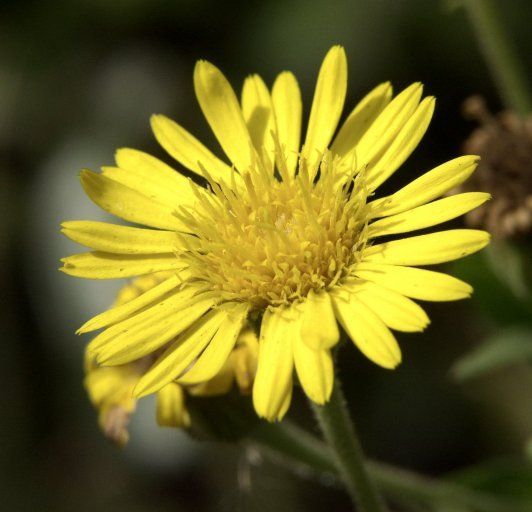FNPS Plant Database
Chrysopsis gossypina
Nomenclature
Common Name:
Synonym(s):
Genus species:
Family:
Asteraceae (Compositae)
Plant Specifics
Form:
Size:
Life Span:
Long-lived perennial
Flower Color:
Fruit Color:
Phenology:
Noted For:
Landscaping
Recommended Uses:
Considerations:
Availability:
Propagation:
Light:
Moisture Tolerance:
Always Flooded---------------------------------Extremely Dry
□□□□□□□□□□□□□□□□□□□□□■■■■■■■■■■■■■■■■■■□□□
Somewhat moist, no flooding -to- Very long very dry periods
Salt Water Flooding Tolerance:
Unknown
Salt Spray/Salty Soil Tolerance:
High. Can tolerate significant and ongoing amounts of salt
Soil or Other Substrate:
Sand
Soil pH:
Suitable to Grow In:

USDA zones are based on the average annual extreme minimum winter temperature.
Don't know your zone? Click here to search by zip code.
Vouchered In:
Ecology
Wildlife:
Butterflies and bees including green metallic, sweat, leafcutter, bumble and mining bees (Florida Wildflower Foundation).
Primarily wind dispersed, but small birds consume seed.
Native Habitats:
Comments:
Ethnobotany:
General Comments:
Citations:
Chafin, L. G. (2000). Field Guide to the Rare Plants of Florida. Florida Natural Areas Inventory, Tallahassee, FL.
Huegel, Craig N. (2012). Native Wildflowers and Other Ground Covers for Florida Landscapes. University Press of Florida, Gainesville.
Miller, D. L, M. Thetford, C.M. Verlinde, G. Campbell, and A. Smith. (2018). Dune Restoration and Enhancement for the Florida Panhandle: SGEB-75/SG156, 9/2018. EDIS, 2018(5). ( ). Accessed 2026. Florida Sea Grant Program, National Oceanic and Atmospheric Administration and the University of Florida, Gainesville.
Wunderlin, R. P, B. F. Hansen, A. R. Franck, and F. B. Essig. (1999+). Atlas of Florida Plants. ( https://florida.plantatlas.usf.edu/ ). [S. M. Landry and K. N. Campbell (application development), USF Water Institute.] Institute for Systematic Botany, University of South Florida, Tampa.









